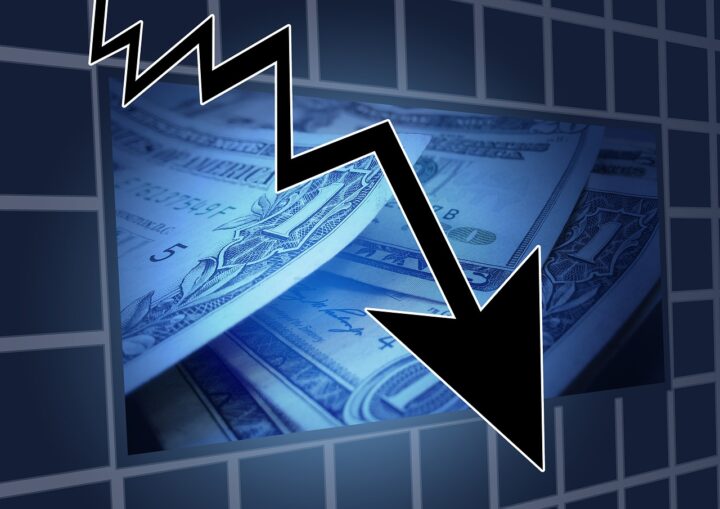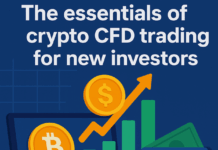Did you know that the average person has no savings to fall back on during the next economic downturn? Given that an increasing number of analysts predict a new recession over the next several years, this is an even more disturbing reality. There are, however, some straightforward methods to be ready for a downturn, such as knowing how the stock market might be impacted and the recession-proof techniques employed by worldwide investors to possibly profit from it.
The recession that began in 2020 and was caused by COVID-19 lasted for an unprecedented two months. Yet, it affected many people, as recessions tend to do. There’s a chance that the economy is about to retake a nosedive, so it’s a good time to brush up on how to make the most of a slump.
Several investors learned hard lessons after seeing their portfolios wiped out during the crisis. If they had hung on to their investments, in some instances, they would now be worth far more than when they were first purchased.
Here, we’ll go over the basics of what a recession is, what causes them, and how they play out in the real world and on the stock market, as well as provide some advice on how to be ready for the next one and a few methods you can put in your back pocket to weather the storm.
An Economic Recession

Although the word “recession” does not have a formal definition, it is understood to describe a time when economic activity was low. Recessions are only sometimes associated with long periods of economic downturn. As a practical definition, economists and observers agree that a recession occurs when real (inflation-adjusted) GDP (the value of all goods and services produced in a nation) falls for two consecutive quarters.
The definition offers benefits, but it also has certain limitations. To evaluate whether a nation is in a recession, looking at a broader range of indicators is preferable to just GDP alone. Additional arrows may give you a more accurate and timely picture of the economy’s health.
When production, labor, wage growth, and other financial indices all decline significantly and remain low for an extended period, the NBER classifies the whole sector as being in a recession. As economic activity peaks, a recession starts; when it bottoms out, it ends. In line with this definition, the committee examines various indicators besides GDP when assessing economic developments, such as employment, income, sales, and industrial output.
When Do Recessions Occur, And Why?
One of the most consistent topics of economic study has been the causes of economic downturns. Recessions may occur for several different reasons. Some are linked to substantial swings in the cost of materials and labor. A dramatic increase in energy prices, for example, might foretell a recession. The rising cost of energy multiplies prices, reducing demand in the economy as a whole. Deflationary fiscal and financial policies adopted by authorities in an effort to reduce inflation could also contribute to economic downturns. If these policies are implemented large enough, they might reduce demand for goods and services, which can trigger a recession.
Troubles in the financial markets may be traced back to the beginning of several recessions, including the present one. Rapid debt accumulation often follows periods of sharp gains in asset values and quick expansions in lending. When businesses and families are overextended and having trouble making their debt payments, they cut down on investment and spending, which slows the economy. Such credit booms don’t always lead to recessions, but when they do, they tend to be more expensive than average.
Ways To Cater Trading In A Recession

Get Yourself A Brokerage Account With A Legitimate Provider.
You need to know that your broker has your back and is running a tight ship when the economy is downturned. There is a greater sense of safety and security when dealing with a broker authorized by a well-known financial authority like the Financial Conduct Authority (FCA).
The FCA, ASIC, CySEC, and EFSA are just a few of the world’s most prestigious financial watchdogs that oversee Admirals.
Employ Dollar-Cost Average
The next economic downturn will sneak up on you like many others. Yet a sell-off in the stock market is likely to occur far before a recession. Thus, if it ever happens, recall the first lesson: Most stock market bottoms occur before the recession ends.
With this knowledge, investors may use the dollar-cost averaging strategy to their advantage during a down market. Monthly payments to a retirement account are one example of this strategy in action. In contrast, when the market begins to fall, it is the perfect opportunity to profit by boosting your payments to, or beginning dollar-cost averaging into, a non-qualified trading portfolio.
You can lower your average cost per share over time by using dollar-cost averaging to invest. The net value will drop as the demand arises, making you a profit.
Profit From A Declining Market By Studying CFDs
While trading with CFDs, you expose yourself to various potential rewards and losses. But, consumers may make money in both up-and-down markets by dealing with them, which we discuss in our first recession-proof investing technique below.
In a recession, when some markets are sinking and others are increasing, CFD trading may provide the necessary flexibility.
Customers may continue to use either a standard share-dealing account or a cryptocurrency auto-trading account. While you won’t be able to make money in a declining market, there are still advantages to having this account, such as dividend payments. Nonetheless, accessing various trading goods in the financial sector could be convenient via a single broker.
Fund Your Portfolio Using Dividends
During a recession, the best stocks are those of big, well-established corporations with solid financials and consistent cash flow. These corporations are not only more likely to pay dividends, but they are also better able to withstand economic downturns than smaller corporations with weak cash flows.
Dividends are paid out for several reasons for investors. A firm is solvent and able to weather most economic storms if it has a track record of dividend increases and payments. Dividends, secondly, provide a safety net in the form of a return. You will still make money investing in stocks even if the price drops. For these reasons, dividend equities have a better track record of survival in down markets than their non-dividend counterparts.
Owning dividend stocks is easiest via mutual funds or ETFs, focusing only on dividend payers.
Learn Futures Markets, Stocks, Commodity Markets, And Indexes.
The term “financial markets” encompasses various exchanges, including the Foreign Exchange (FX), Stock, Commodity, Index, Bond, and Cryptocurrency markets. During a downturn, these markets may exhibit either rising or falling tendencies.
The term “safe-haven asset” is often used to describe markets predicted to maintain their value despite fluctuations in the broader financial markets. Gold’s historical significance as money makes it an attractive value shop today.
As you’ll see in the following paragraphs, being well-versed in the many asset classes you may trade to be ready to do business even during economic downturns is essential.
Can You Expect A Recession To Affect Your Investments?
When a recession is imminent, earnings drop and growth become negative, increasing the likelihood that the stock market will follow suit. Investors in stocks should exercise additional prudence during a recession since there is a significant risk their holdings will lose value. Yet, anticipating a recession is complex, and selling into a declining market might be unwise. Most financial gurus believe that amid a recession, investors should keep their eye on the long haul and see the downturn as a chance to stock up on “bargains.”
Conclusion
Eventually, the economy will begin to improve again. Investors may participate in one of the largest market booms while avoiding the turmoil that often follows when the economy declines if they build a strategy focused on counter-cyclical businesses with solid financial books in recession-resistant sectors.
Investors with the patience to see the market through these turbulent times will be rewarded in the long run. They’ll be able to sell low and buy high during a bear market, setting themselves up for even greater rewards once the market turns around.


















